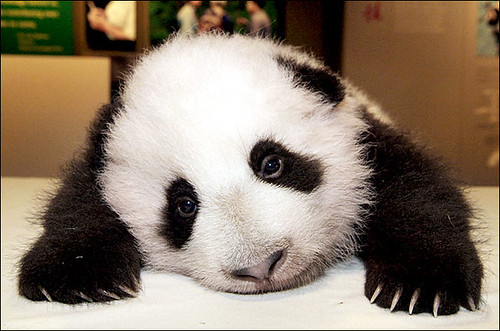Lesser Evils
Published by Panda on Wednesday, August 23, 2006 at 7:00 PM I just started reading The Lesser Evil, by Michael Ignatieff, in an ill-advised attempt to get back to my roots in philosophy. I can already tell that it's going to be significantly slower going than it should be. Moreover, I won't pick up half as much from this book as I would have about a year or two ago.
I just started reading The Lesser Evil, by Michael Ignatieff, in an ill-advised attempt to get back to my roots in philosophy. I can already tell that it's going to be significantly slower going than it should be. Moreover, I won't pick up half as much from this book as I would have about a year or two ago.
The feeling reminds me of sentiments expressed in an article in the Times. Having previously been able to quickly read and digest this sort of text, it's depressing to pick up a book which should really be a light read and feel as if it requires a bit more lifting than I would have expected. Moreover, whereas the article refers to highly trained athletes that no longer need to use their muscles, this is my mind we're talking about here. My mind since college. I was really hoping that I'd be getting sharper, not duller. Oh well.
The book, or the thirty pages of it that I've read, is a discussion of evil and politics. The book was written post 9/11, so the reason for its writing is fairly transparent. Ignatieff is trying to better understand the extent to which a government can abridge its citizens' civil liberties in the name of security, while still staying on solid politically moral ground. There's obviously a lot going on here, which I don't want to get into here.
His thesis (so far) is that when faced with such dilemmas, the government should adopt the policy that represents "the lesser evil," (hence the title of his book). The position seems pretty uncontroversial to me, if you can get beyond the fact that it's probably impossible to implement in any real sense. I think what's more interesting is the root of the idea, which basically assumes that evils can be weighed against each other.
This is something that people don't really like doing, although I think we all know that it has to happen at some point. The canonical case is whether or not you're allowed to torture a suspect if you think he may be the only person that knows the location of a megabomb that's set to go off in the middle of a crowded metropolis within the next hour. Most people give in to their more practical side and start saying, "Ok, maybe in that case." But there's also a strong inclination to say that as soon as you take that step, you're opening up a Pandora's box of violations, exceptions, human rights violations, and what not.
Qualifier: I haven't quite finished the relevant chapter yet. However, it looks like Ignatieff is saying that this is OK, so long as we continue to recognize that what we are doing is an evil. The fact that it is mitigated by the presence of a greater evil does not excuse it. But the realities of politics make it necessary.
That being the case, my impression is that it's all about measuring the greatness of an evil. I'm dying to find out how Ignatieff proposes that we do this. What makes something more evil than another? The number of people affected? The severity of the effect? Or will it be one of those "by their own lights," kind of deals?
My guess is that he'll post some helpful if not particularly concrete guidelines. Since this is where the most substantive theories will have to be, I'll reserve my judgement on his position until I find out where his lines are. However, preliminary paragraphs indicate that Ignatieff thinks that suspension of civil liberties in the name of combatting terror is not a bad thing, so long as the suspensions are "temporary." Given that the war has the potential to last almost indefinitely, much like the war on drugs, I'm very curious to see how this plays out. If civil liberties are "temporarily" suspended for eighty years, then I'd be inclined to say that something is wonky in his theory.
